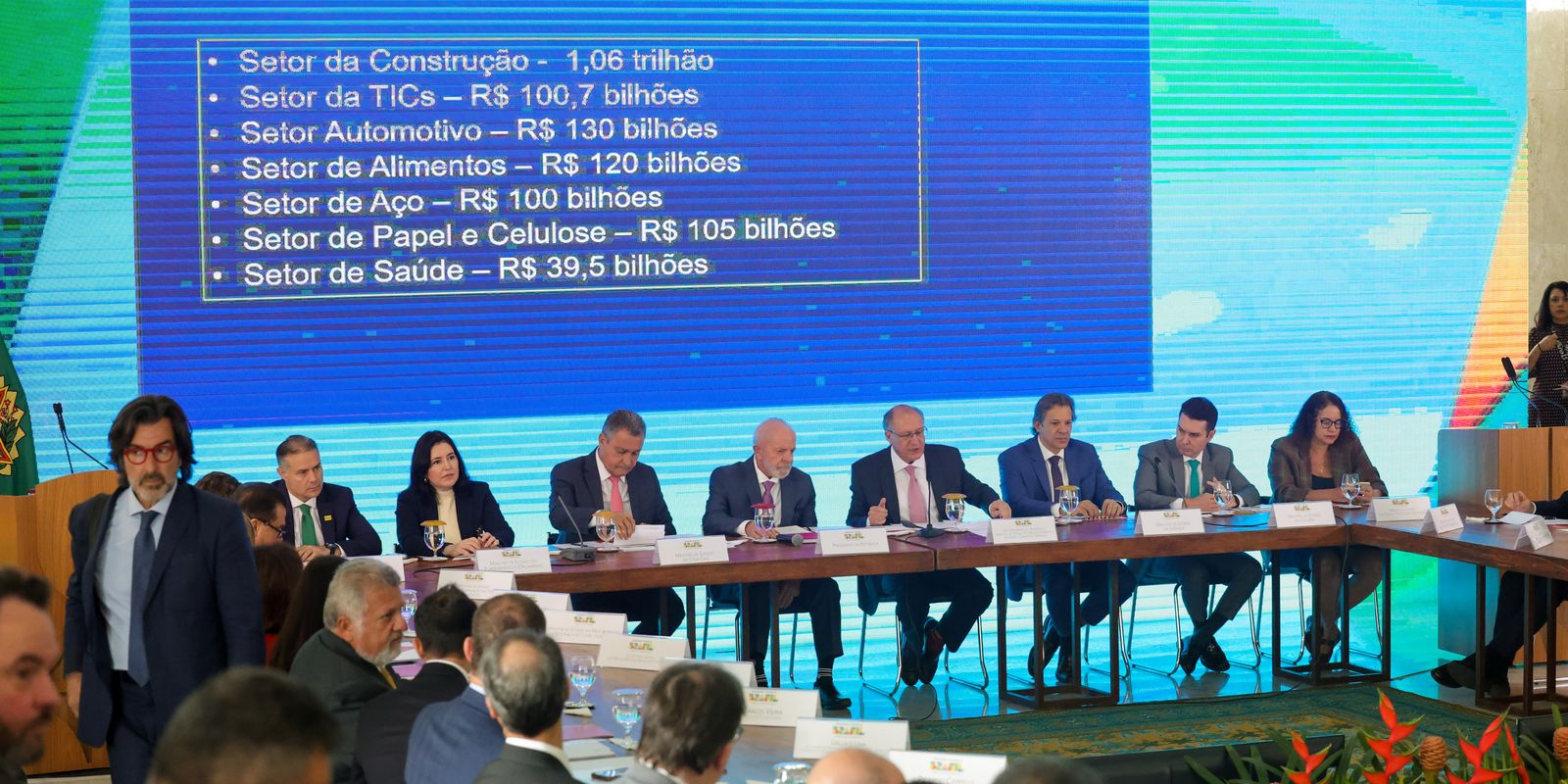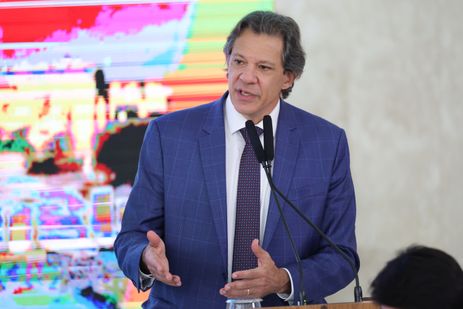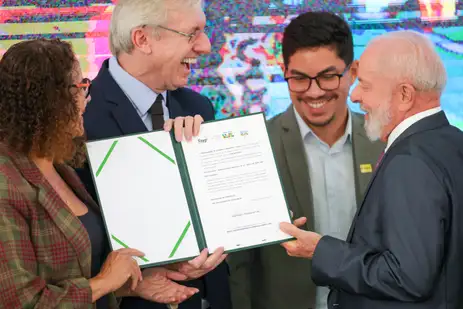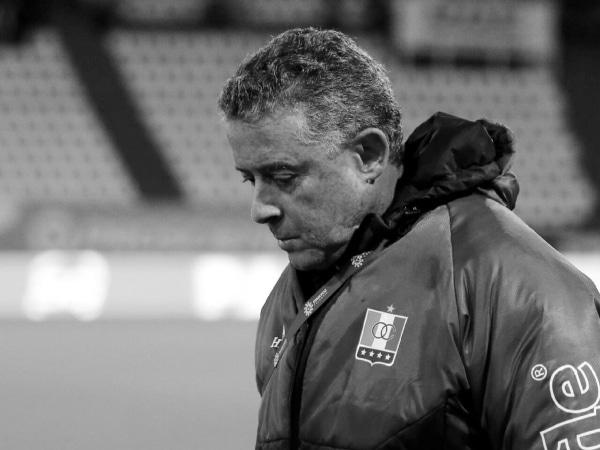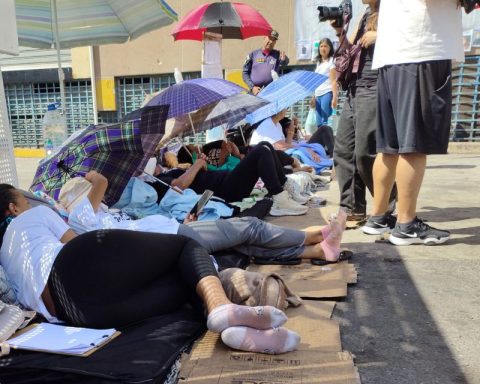The federal government presented, this Wednesday (30), the investments that will be made in the industry in sectors such as infrastructure, basic sanitation, housing and mobility until 2033. The resources total R$ 1.6 trillion, of which R$ 1.06 trillion from the private sector and the remainder in lines of credit and subsidies from the public authorities, including amounts allocated to works under the Growth Acceleration (PAC) and Minha Casa Minha Vida programs that boost industrial activities.
The projects are linked to Mission 3 of Nova Indústria Brasil (NIB). Launched in January this year, NIB is a industrial policy.
Understand the Nova Indústria Brasil program
With missions related to expanding autonomy, ecological transition and modernization of the industrial park, the program will focus on sectors such as agroindustry, health, bioeconomy and defense, and aims to boost national development by 2033, based on elements such as sustainability and innovation.
The announcements took place at a ceremony at Palácio do Planalto with the presence of President Luiz Inácio Lula da Silva. According to the vice-president and minister of Development, Industry, Commerce and Services, Geraldo Alckmin, of the six NIB missions, this urban infrastructure mission is breaking investment records.
“It’s good news from beginning to end because it improves people’s lives, with housing, sanitation, infrastructure; reduces costs; boosts the economy and job creation. It is the sector that responds most quickly in generating employment. Investment is all Brazil needs to have sustainable growth. [Quero] thank the entire private sector participating strongly and investing in Brazil”, said Alckmin.
The Minister of Finance, Fernando Haddad, stated that the federal government is attentive to the demands of the private sector in relation to tax reform, which is in the regulatory phase. According to Haddad, the economic team is dedicated “to what is most important from the point of view of increasing the productivity of the Brazilian economy”.
“We know what civil construction can represent in terms of economic development, we know the housing deficit in this country, we know the infrastructure deficit in this country, and the industry depends on good infrastructure to be able to compete. This, which will be enormously favored by the tax reform, because we will stop exporting taxes from the year 2026 and we will become much more competitive than we are today, also considering our comparative advantage in relation to the energy matrix”, highlighted Haddad.
Among the priorities of NIB Mission 3 is the development of the battery production chain. The goal established by the National Council for Industrial Development (CNDI) is, by 2026, to have at least 3% of Brazilian electrified vehicles circulating with national batteries, and to reach 33% by 2033.
Private sector
In this sense, one of the announcements from the private sector came from the Brazilian company WEG, which will invest in the production of packs of electric batteries in Brazil, with an initial investment of R$100 million. In the last two years, WEG has already announced a total of R$1.8 billion in investments in the country, which are related to NIB Mission 3.
The MDIC recalled that Brazil has large reserves of lithium and other minerals used in the manufacture of electric batteries, but almost all of the extraction of these ores is now exported for the production of the component outside the country.
Another objective of Mission 3 is to deliver, by 2026, 2 million homes contracted through the Minha Casa Minha Vida Program, of which 500,000 will be equipped with photovoltaic solar panels. And, by 2033, 6.9 million homes, 1.4 million of which will have photovoltaic energy.
Among the priorities and challenges are also the development of metro rail chains, with their components, and propulsion systems for motor vehicles.
During the ceremony, the Brazilian Association of Infrastructure and Basic Industries (ABDIB), the Brazilian Chamber of the Construction Industry (CBIC) and the Brazilian Association of the Construction Materials Industry (Abramat) also announced new investments of R$ 1.05 trillion in the areas of housing, infrastructure and sanitation by 2029.
The majority of the resources should be allocated to urban mobility, sanitation, airports, railways, highways and ports, among others, worth R$833 billion, in addition to R$222.5 billion for housing and R$1, 6 billion in the production of inputs.
Credit lines
Of the public resources for NIB’s Mission 3, R$113.7 billion come from credit lines and subsidies from the Mais Produção Plan (P+P), created to serve as a perennial financing tool for NIB, with a focus on neo-industrialization and ecological transformation. Of this total, R$48.6 billion has been allocated to related projects since 2023 and R$65.1 billion will be available by 2026.
Also included in the public resources account for Mission 3 are resources of R$492.4 billion from Caixa, Banco do Nordeste (BNB) and the National Bank for Economic and Social Development (BNDES) destined for PAC works and the Minha Casa program. My life.
When NIB was launched, the Mais Produção Plan had R$300 billion in resources. With the new contribution of R$63 billion from Caixa, announced today, public resources in projects for the six NIB missions rose to R$405.7 billion.
The other institutions in the plan are the Financier of Studies and Projects (Finep) – a public company linked to the Ministry of Science, Technology and Innovation –, Banco da Amazônia (Basa) and the Brazilian Industrial Research and Innovation Company (Embrapii).
At this Wednesday’s ceremony, Finep signed eight subsidy contracts and two direct credit contracts for the development of new technologies, totaling R$157 million. Of these, almost R$10 million will go towards the project of a “flying boat”, a vehicle capable of flying over the rivers. The technology has been developed by startup amazonense AeroRiver. According to the company, the flying boat will be able to transport up to 10 passengers, including during dry periods, reaching speeds of 150 kilometers per hour.
The other projects supported by Finep involve solutions for sustainable aviation (for example, a hybrid turbogenerator powered by ethanol), research and technological centers, waste remanufacturing and the development of an autonomous electric truck for industrial use, among others.
The government’s industrial policy has six missions related to expanding autonomy, the ecological transition and the modernization of the Brazilian industrial park. Among the sectors that will receive attention are agroindustry, health, urban infrastructure, information technology, bioeconomy and defense industry.
During the event, Alckmin presented a balance of private investments already announced within the scope of NIB, totaling R$ 1.694 trillion:
. Urban infrastructure sector – 1.06 trillion
. Information and Communication Technology (ICT) Sector – R$ 100.7 billion
. Automotive sector – R$130 billion
. Food sector – R$120 billion
. Steel sector – R$100 billion
. Paper and cellulose sector – R$ 105 billion
. Health sector – R$39.5 billion
